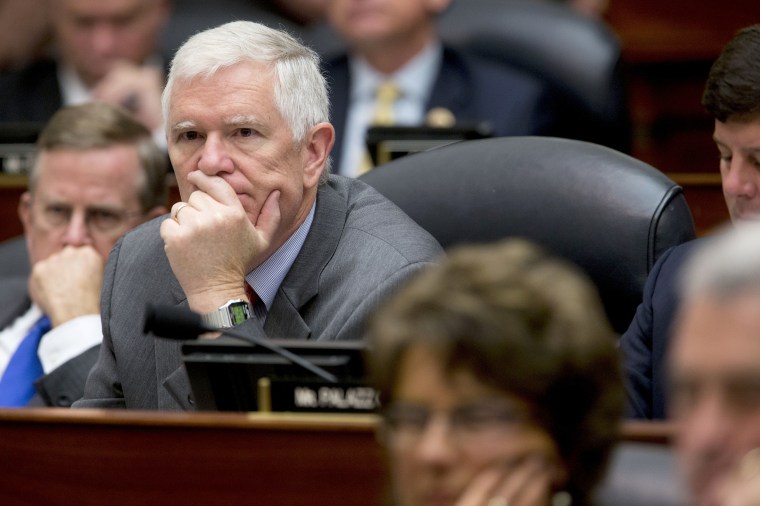A recent Washington Post analysis did a nice job summarizing the intra-party fight the Republican Party will soon be unable to avoid.
The fight over the future of the Republican Party and former president Donald Trump's role in it won't have to wait for another potential presidential campaign in 2024. The 2022 election is shaping up to be a massive referendum.
At the outset, it's worth emphasizing that much of the talk about a GOP "civil war" is overstated, and on most issues, Republicans are largely on the same regressive page. Even those GOP lawmakers who are not seen as members of the "Trump wing" of the Republican Party invariably voted with the former president most of the time during the former president's failed tenure.
That said, there are some qualitative differences -- at least in tone and tactics -- between the party's old-guard members, many of whom are headed for the exits, and its Trumpified insurgents, who are eager to flex their muscles at the ballot box.
Consider some of the headlines from the last few days:
In Alabama, Rep. Mo Brooks, a far-right Republican who helped rally insurrectionists ahead of the Jan. 6 riot, launched his U.S. Senate campaign. His opening pitch to voters, made alongside Stephen Miller, couldn't have been Trumpier: "In 2020, America suffered the worst voter fraud, and election theft, in history."
In Georgia, Rep. Jody Hice, another far-right Republican with "a history of pushing falsehoods" about his own state's electoral system, launched a primary race against Georgia Secretary of State Brad Raffensperger (R). Hice quickly picked up Trump's endorsement and started peddling demonstrably false claims about how Georgia's elections have been administered.
In Missouri, disgraced former Gov. Eric Greitens (R) launched a U.S. Senate campaign, leaving no doubt that he's "running under the banner of the former president."
In Ohio, a crowded field of GOP candidates, each hoping to get the party's nomination in an open-seat contest, are "scrambling to out-Trump each other."
There's a school of thought that says retiring Republican senators such as Missouri's Roy Blunt and Ohio's Rob Portman represent part of the GOP's "governing wing." Some observers even go so far as to describe them as relative "moderates." I'm not at all comfortable with such assessments: Blunt, Portman, and others like them have cultivated records as conservative ideologues with little interest in policy successes.
That said, I'm mindful of the differences between, say, Alabama's Richard Shelby and his possible successor, Mo Brooks. Or Georgia's Brad Raffensperger and his possible successor, Jody Hice. Or Tennessee's Marsha Blackburn and her immediate predecessor, Bob Corker.
The Trump wing is more extreme, more conspiratorial, more averse to compromise, and generally more skeptical of the value of democracy and fair elections.
All of which is to say, it may seem like Republican politics has reached rock bottom, but the emergence of a growing field of Trumpified candidates is a reminder that conditions may yet get worse.

